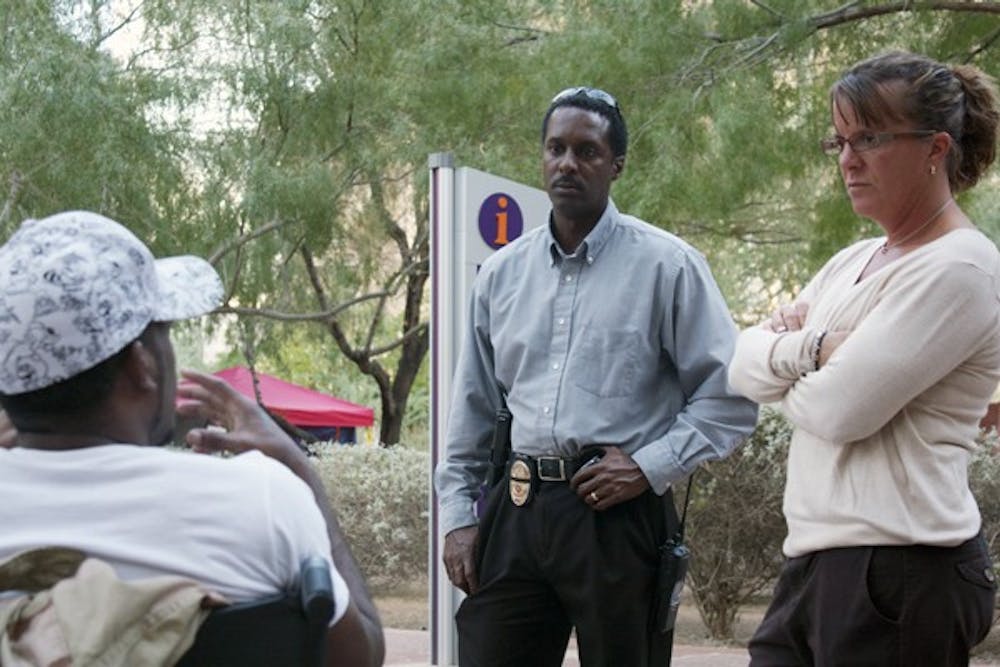Phoenix Police estimated that between Oct. 14 and Oct. 27, more than $200,000 has been spent on extended overtime for increased police and fire enforcement at the Occupy Phoenix protest.
After the department released its estimates, Phoenix District 6 Councilman Sal DiCiccio said offhandedly that the city should start charging occupants a fee to pay for the departments’ expenses, despite their First Amendment right to protest.
“I think everyone has the constitutional right to petition the government.” DiCiccio said. “(The comment) was more along the lines of a level of frustration, because I know the expense that we’re putting out with people there.”
Occupy Phoenix demonstrator Ray Bradford said any fee charged would infringe on his and the movement’s right to free speech.
“How can you charge a fee so that someone can practice their Constitutional First Amendment right to freedom of speech?” Bradford said. “There won’t be a charge, I think this is more ridiculous political grandstanding from the outrageous and incompetent politicians of Arizona.”
DiCiccio said that even though the comment wasn’t meant literally, he feels that it’s unfair for Valley citizens to pay for the overtime expense of the police.
“At what point do taxpayers feel like their rights have been stepped on?” he asked. “It’s a tough call for government and from my end, I just think it’s a fairness issue.”
Fire and police departments, as well as the Parks and Recreation Department and the city prosecutor’s office, have all experienced an extended workload since the start of the Occupy Phoenix movement on Oct. 14.
Since the initial arrest of 45 protesters the first night, demonstrators have complied with police orders to stay on the sidewalk of Cesar Chavez Plaza after dark and have remained peaceful.
“It took (the city) a long time to realize that this is a non-violent movement,” Bradford said. “We’re interested in getting a number of messages across in a peaceful, non-violent, non-confrontational manner.”
Phoenix Police Sgt. Steve Martos said the amount of police enforcement has dwindled down to only a few officers patrolling the area, but until the day the protests end there will be continued enforcement.
“It’s an inconvenience for us not to be prepared, should anything else happen, so I think we need to have some sort of vigilance there,” he said. “Our job as police is to enforce the law and keep the peace.”
DiCiccio said he doesn’t want to see heightened, overtime enforcement, and questioned why the department didn’t use existing resources from other areas.
However, DiCiccio did stress the importance for sustained enforcement, since there is the ongoing possibility of riots, much like the one at Occupy Oakland on Oct. 25.
“If you look at what’s happening around the country, it doesn’t take much for these things to turn and become an ugly situation,” he said.
Demonstrators don’t see the need for police to keep the peace in the area, but Bradford said they are certainly not enemies of the police. They support the police as working-class citizens.
“They’re part of the 99 percent,” Bradford said. “They’re absolutely a part of our movement and many of them actually privately support this movement.”
Reach the reporter at sraymund@asu.edu
Click here to subscribe to the daily State Press newsletter.





